The Award
The unseen economic, ecological, social, and cultural challenges facing contemporary societies are being addressed by architects and planners as they search for a new definition of progress and the right balance between humankind and the environment.
Each year, The Global Award for Sustainable Architecture™ recognizes five architects who share the principles of sustainable development and an experimental participatory Design approach to the needs of society, in both the northern and southern hemispheres.
The Global Award was created in 2006 by the architect and scholar Jana Revedin. The Global Award Symposium is placed under UNESCO’s patronage. The Award is endorsed by the Union of International Architects (UIA) since 2024.
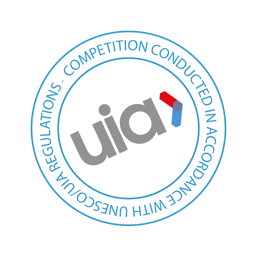
The work carried out by The Global Award has garnered significant international attention, becoming a platform for scientific independence to unite the award winners in a community of collective research and experimentation in architectural and urban self-development projects.
The Award
The unseen economic, ecological, social, and cultural challenges facing contemporary societies are being addressed by architects and planners as they search for a new definition of progress and the right balance between humankind and the environment.
Each year, The Global Award for Sustainable Architecture™ recognizes five architects who share the principles of sustainable development and an experimental participatory Design approach to the needs of society, in both the northern and southern hemispheres.
The Global Award was created in 2006 by the architect and scholar Jana Revedin. The Global Award Symposium is placed under UNESCO’s patronage. The Award is endorsed by the Union of International Architects (UIA) since 2024.

The work carried out by The Global Award has garnered significant international attention, becoming a platform for scientific independence to unite the award winners in a community of collective research and experimentation in architectural and urban self-development projects.
The purpose
The purpose of this annual award is to honor five living architects, urban or landscape designers who are moving toward sustainability.
Their work offers clear insights into the search for an ecologically responsible contemporary architecture which is:
- fully in step with the ethical, civil, and social concerns of today
- innovative in the areas of ecology, energy, materials, and technology
- progressive in its search for new standards for both public and private facilities.
The Founding Principles
Sustainable design is the catalyst for a new participative approach in architectural and urban planning processes. The very fundamentals of a project – durability, flexibility, economic, technical and ecological adequacy, cultural and social acceptance – are being readdressed with regard to society’s new concerns: fighting inequality and cultural disrespect. The Global Award Community, which consists of the 90 contemporary architects and teams from around the globe who have already received the award, works towards a sustainable architectural ethics and fosters research, experimentation and transmission in the fields of sustainable architecture, urban renewal and academic social responsibility. The Global Award Community defines architecture as an agent of empowerment, self-development and civic rights.
“Dare, transmit, federate” is its motto.
The jury
The scientific jury is chaired by Prof. Dr. Jana Revedin, architect and founding President of the Global Award for Sustainable Architecture. Each year, two former Global Award winners, who are also experts in the chosen theme of the year, are invited to join the jury.
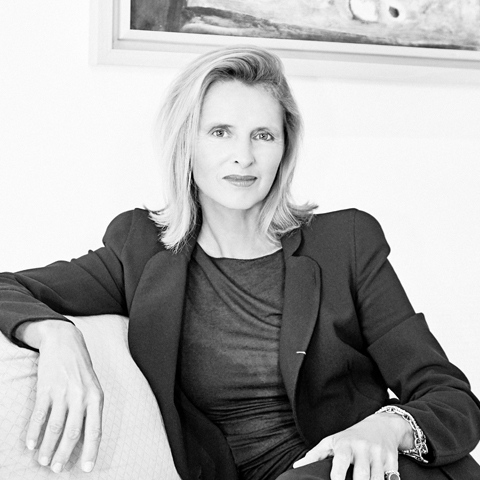
©Martin Rauchenwald
PROF. DR. Jana Revedin
Architect, Ecole Spéciale d’Architecture Paris, France
Founding President of the Global Award for Sustainable Architecture™, Venice, Italy
Born in Constance (Germany), Jana Revedin is an architect, theorist and writer. The holder of a Ph.D. in architectural and urban sciences and renowned expert in the Bauhaus movement and its transdisciplinary active pedagogy, she studied architecture at Belgrano University Buenos Aires, Princeton School of Architecture and the Polytechnic University of Milan. After receiving her habilitation, she taught at the Università Iuav di Venezia as an assistant to Aldo Rossi.
In 1996, she founded her architectural practice in Venice, specializing in sustainable architecture and urban rehabilitation. Curator of the first EU Student Competition in Sustainable Architecture gau : di from 2004 to 2012 and Founding President of the Global Award for Sustainable Architecture under the patronage of UNESCO in 2006, today she is a full professor of Architecture and Urban Design at the École Spéciale d’Architecture Paris, a member of the Centre National de la Recherche Scientifique (CNRS) research laboratory “Environment, City and Society” and serves as the United Nations Educational, Scientific and Cultural Organization (UNESCO) delegate and advisor to the research and education commission (EDUCOM) of the International Union of Architects (UIA).
Her “Radicant Design” Theory, which calls for situated projects driven by transdisciplinary urban and contextual analysis and the active participation of users and stakeholders in participatory Design and Experimentation processes, is widely recognized. Her latest publications include: Marie-Hélène Contal, Jana Revedin, “Sustainable Design 10: Towards a New Ethics for Architecture and the City”, Gallimard, Paris 2023; Jana Revedin, “L’Architecte et l’existant: Construire avec ce qui est déjà là”, with a foreword by Charles Landry, Gallimard, Paris 2022 ; Jana Revedin, “Radicant Design: How to co-create sustainable living space”, Eliva Press, New York 2021.
Jana Revedin was appointed a French Chevalier des Arts et des Lettres in 2014 and was honored with the Médaille de la Prospective of the French Académie d’Architecture in 2017. She became a member of the French Académie d’Architecture in 2023.
Marie-Hélène Contal
Architect, Dean of the Ecole Spéciale d’Architecture, Paris, France
Marie-Hélène Contal (born in Nancy, France) graduated from the École d’Architecture de Nancy, and from the Institut d’Etudes Politiques de Paris. She was the editor of the review Archi-Créé (1985–91) and the co-curator of exhibitions, among them 40 under 40, which was devoted to new French architecture (1990). She entered the cabinet of Emile Biasini, Secretary of State for the Grands Projects and their Mission (1991–2000), where her responsibilities included the prefiguration of the Palais de Tokyo and the new Cinémathèque Française, both in Paris. In 2001, she joined Jean-Louis Cohen for the feasibility design of the Cité de l’architecture et du patrimoine in Paris.
Her curatorships at the Cité include: Voralberg, a constructive provocation (2003), which focused on pioneering Austrian green architecture and strongly influenced French discourse, Living Ecological – section International (2009), Reenchanting the World (2014), and the touring annual exhibitions Global Award for Sustainable Architecture (2009–22).
Contal was an auditor of the French-American Foundation and of the Palladio Foundation and was elected to the French Académie d’Architecture in 2018. From 2016 to 2019 she served as President of the École Nationale Supérieure d’Architecture de Lyon and was appointed dean of the École Spéciale d’Architecture de Paris in 2023.
Other positions she has held include: Scientific Committee of the Global Award for Sustainable Architecture, Board of Daw’an Mud Brick Architecture Foundation, Urban Strategy Council of Engie (2007–18), Board of Solar Decathlon Europe (2014), and Nomination Committee of the Aga Khan Award for Architecture (2015).
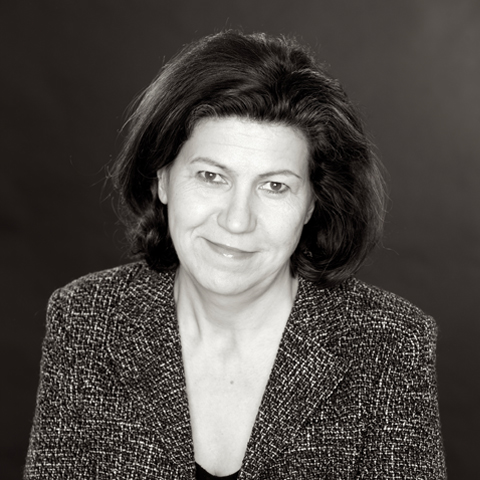
©Gernot Gleiss
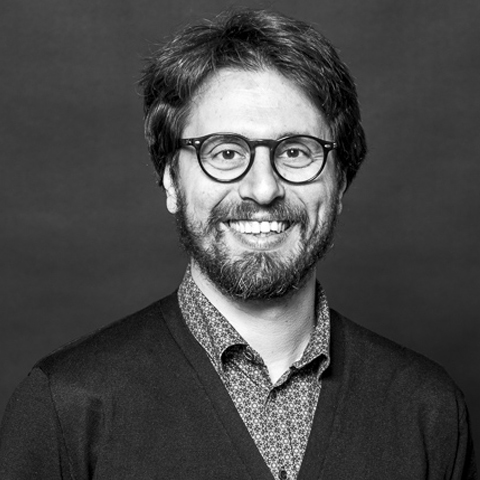
Jacopo Galli
Architect, Università Iuav di Venezia, Venice, Italy
Jacopo Galli (born in Crema, Italy) received his Ph.D. in architectural design from Università Iuav di Venezia with a dissertation titled Tropical Toolbox. Fry&Drew and the search for African modernity. He was curator of the architecture section for the “Africa Big Change – Big Chance” exhibition at La Triennale di Milano and CIVA Brussels; the author of the book « Arturo Mezzedimi. Architetto della Superproduzione » (with Benno Albrecht and Filippo De Dominicis) and project manager for the “Makoko Floating School II” project by NLE Studio which was awarded the Silver Lion at the 2016 Venice Biennale.
He was assistant director of the Venice Program at the University of Virginia and visiting professor at Escola da Cidade in Sao Paulo and École Nationale d’Architecture Paris Val de Seine. He is currently an associate researcher at FEEM Fondazione Eni Enrico Mattei and project manager for the Venezia Sustainability Foundation-VSF.
Since 2014, he has been dealing with the topic of urbicides and reconstructions, organizing the “Urbicide Syria” conference, promoting the “Sketch for Syria” initiative and coordinating the international workshop WAVE 2017 “Syria the Making of the Future”. He has provided consultancy on reconstruction issues to private companies, international agencies such as UN-ESCWA, UNDP, the World Bank with the “Building for Peace” project and public administrations. These research experiences have been collected in the book « Cities Under Pressure » (with Benno Albrecht).
Prof. Dr. Spela Hudnik
Architect, University of Ljubljana, Slovenia
Spela Hudnik has been working in architectural practice, research, and teaching for more than 20 years. She graduated from the Faculty of Architecture, University of Ljubljana (1986) and continued her postgraduate studies at the Akademie der bildenden Künste, and Angewandte Kunst in Vienna with prof. Michael Sorkin and Peter Sloterdijk. She received her Ph.D. from the University of Ljubljana (2003). She also received Recognition for Important Works of Art from the University of Ljubljana (2013).
She is the co-founder of the architectural studio MONOCHROME ARCHITECTS (1986) together with Peter Vezjak. The field of activity focuses primarily on the study of global impacts on spatial transformations, with an emphasis on social and cultural context, heritage, border areas, postindustrial areas, and military architecture – bunkers. The research and pedagogical practice is based on an interdisciplinary approach and in cooperation with international institutions. She is currently involved in research for the World Health Organization (WHO), HEI Transformer, European Cultural City GO2025.
She is internationally published and represented in Slovenia as well as abroad through exhibitions, research, critical debates, writing, workshops, and lectures. Her innovative, experimental, and multidisciplinary approach and critical local and global debates were internationally recognized in the Architecture Biennale Ljubljana (IABL) series, which she founded and organized between 2000 and 2008.
The studio operates in an international environment with architectural projects in Klagenfurt, Paris, London, Portugal, and Croatia. Its works have been awarded and published in many international journals. She has also been a member of the Global Scientific Awards for Sustainable Architecture in Paris for more than 10 years. She participates regularly in the CA2RE and Ph.D. programs as a jury member, reviewer, and chair of the panel. In the last few years, she has organized a Ph.D. International Seminar together with the Universities of Lisbon, Porto and Manchester. She is a visiting professor in many European Universities including Lisbon, Paris, Trieste, Gdansk, Copenhagen, Fiume… She regularly leads international workshops in Europe. Her current position is at the University of Ljubljana Faculty of Architecture.
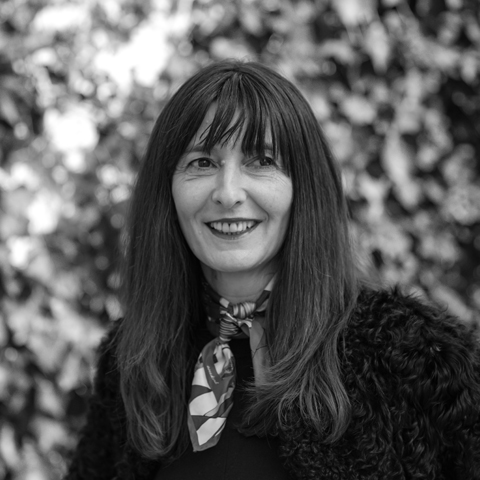
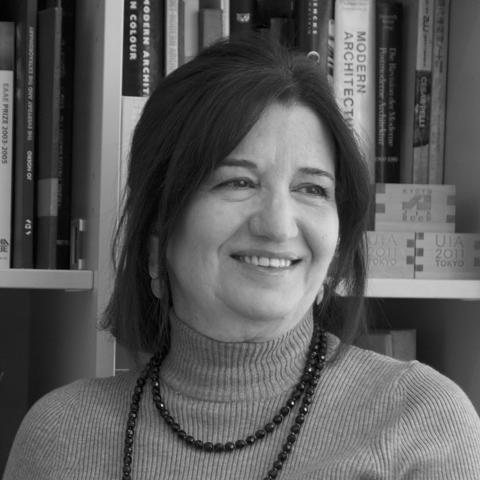
Prof. Dr. Deniz Incedayi
Architect, Mimar Sinan Fine Arts University, Istanbul, Turkey
Deniz Incedayi graduated from the German High School in Istanbul in 1979, and studied architecture at Mimar Sinan Fine Arts University, Department of Architecture, graduating in 1986. She completed her Ph.D. thesis at the same university in 1995, her subject being a model for low-cost housing and the rehabilitation of a squatter area in Istanbul through the user participation method.
Since 1986, she has been teaching at Mimar Sinan Fine Arts University-Faculty of Architecture in undergraduate and post-graduate programs. Her academic work focuses mainly on social and cultural concerns in the architectural design process, the construction projects studio and on taking an interdisciplinary approach in the architectural design process.
She published and edited several books about architectural design issues, architectural education, the housing environment and participatory methods in architectural design; she has many articles and papers in her academic area and joined many national and international work programs, juries, councils and commissions on national and international platforms. Since 2018, she has been a permanent Jury Member of the Global Award for Sustainable Architecture.
She has also held many administrative positions at university such as; Vice Rector, Head of the Department of Architecture, Senate Member, Vice Director of the Institute of Sciences and International Relations Coordinator etc. She has worked at the International Union of Architects (UIA) since 2009 and taken responsibilities in many UIA world congresses around the globe. She was elected as the UIA-Vice President-Region II (2011-2017), as a Council Member-Region II (2009-2011) and as a member of the UNESCO-UIA Education Commission and Validation Council (2009-2023) and performed in several validation visiting panels. Recently she was appointed Co-Director of the Validation Commission for the triennial 2023-26.
She has also undertaken several responsibilities at the Chamber of Architects of Turkey and Istanbul, and was elected as President of the Chamber of Architects of Turkey between 2020-2022; and as the President of the Chamber of Architects of Istanbul Metropolitan Branch between 2010-2014. Since 2006, she has worked as the editor of the architectural journal (mimar.ist), published by the Chamber of Architects of Istanbul.
Prof. Dr. Ashraf M. Salama
Architect, Co-Director of the UNESCO-UIA Education Council, Newcastle, UK
UIA JUROR
Ashraf Salama is Professor of Architecture and Urbanism and Head of the Department of Architecture and the Built Environment, University of Northumbria at Newcastle, England. He is co-Director of the UIA Education Commission (2020-present) and co-Reporter of the UNESCO/UIA Validation Council for Architectural Education (2020-2023). He is an honorary Professor of Architecture at the University Putra Malaysia.
He holds BSc. MSc. and PhD in architecture and has received his education at Al Azhar University in Cairo, Egypt and North Carolina State University, Raleigh, United States.
Professor Salama has chaired four schools of architecture over the past 30 years in MIU, Cairo, Egypt (1996-2001), Qatar University, Doha, Qatar (2009-2014), University of Strathclyde, Glasgow, United Kingdom (2014-2020).
Securing more than £2.5 millions of funded research, he has published over 250 research outputs in the international refereed press. His books includeThe Routledge Companion to Architectural Pedagogies of the Global South, with Harriss & Lara (2022); Transformative Pedagogy in Architecture and Urbanism (2021); Architectural Excellence in Islamic Societies, with El-Ashmouni (2020); Building Migrant Cities in the Gulf: Urban Transformations in the Middle East, with Wiedmann (2019); Spatial Design Education: New Directions for Pedagogy in Architecture and Beyond(2015 &2016);Architecture Beyond Criticism: Expert Judgment and Performance Evaluation, with Preiser, Davis, Hardy (2014); and Demystifying Doha: On Architecture and Urbanism in an Emerging City, with Wiedmann (2013 & 2016).
Professor Salama is the chief editor of the Archnet-IJAR: International Journal of Architectural Research. He is the Director of the UIA Award for Innovation in Architectural Education and was a jury member for several international competitions in Bolivia, Bosnia and Herzegovina, Doha and Dubai, and has served as a technical jury member for the Aga Khan Award for Architecture in Geneva, Switzerland.
Ashraf Salama is the UIA 2017 Recipient of Jean Tschumi Prize for Excellence in Architectural Education and Criticism. He is a licensed architect in Egypt practiced in Egypt (1987-92) and has been architectural and urban design consultant to several authorities and development agencies in the Middle East and was the Director of Research and Consulting at Adams Group Architects (2001-2004), Charlotte, North Carolina, United States.

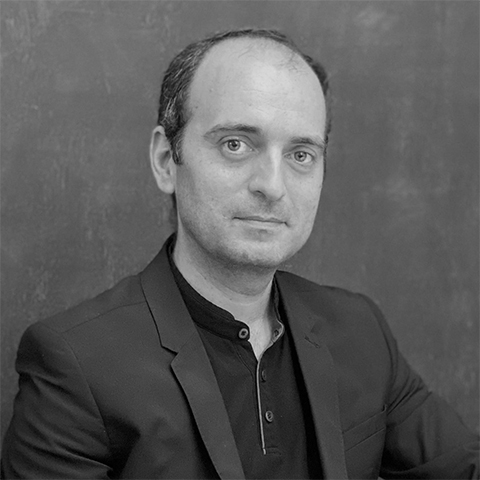
UIA JUROR
Prof. Nuno Soares
Architect, co-Director of the UNESCO-UIA Validation Council, Macau, China
Nuno Soares is an architect and urban planner based in Macau since 2003, spreading his practice through architectural design, teaching, and research. Nuno is the Head of the Department of Architecture and Design at the University of Saint Joseph in Macau and a frequent speaker, lecturer and juror internationally. He founded and directs the Macau-based CURB – Center for Architecture and Urbanism, a non-profit that promotes research, education, production and dissemination of knowledge in architecture and urbanism, taking local issues to a global audience.
Nuno is the Co-Director of the UNESCO-UIA Validation Board, the Secretary General of the Council of Portuguese Speaking Architects (CIALP), Vice-President of the Architects Association of Macau (AAM) and a Member of the Council of Architecture, Engineering and Urbanism of Macau SAR (CAEU).
As principal of his office, UP – Urban Practice, he develops projects ranging from urban scale to architecture and design in Macau and abroad. His work has been awarded and exhibited internationally.
Marta Maccaglia
Architect, Lima, Peru
2018 Global Award for Sustainable Architecture™ Laureate
2026 GUEST JURY
Born in Italy in 1983, she holds a Master’s degree in Exhibition Space Design from La Sapienza University of Rome. Since 2011, she has developed her career in Peru, focusing on architecture and cooperation projects. In 2014, she founded the Semillas (Seeds in English), a non profit organization, working primarily in the Amazon region, collaborating with indigenous communities to create educational, productive, and communal spaces that foster the preservation of ancestral knowledge and sustainability.
At the end of 2019, she co-founded PLAN A 0-100, dedicated to the development of educational architecture projects, including university campuses in Lima for the private sector. Additionally, during her tenure as a professor at UCAL University (2015-2022), she directed the AL BORDE workshop, a space focused on participatory research, design, and construction.
Her career has been recognized internationally, with awards such as the DIVIA Award in Berlin (2023). Through her work with Semillas, she has also been a finalist for prestigious honors, including the Dorfman Award from the Royal Academy (2022), the Mies Crown Hall of Americas Prize (MCHAP) Emerge in Chicago (2022), and the Global Award for Sustainable Architecture™ in Paris (2018). Her projects have been recognized and exhibited at events like the Pan-American Architecture Biennial of Quito (BAQ 2020 and 2018), the Ibero-American Architecture and Urbanism Biennial (BIAU Asunción 2019), and the Chicago Biennial, among others.
With a vision that integrates architecture, community, and nature, her work aims to create spaces that promote well-being and connection with the environment, fostering “buen vivir” through sustainable and participatory practices.
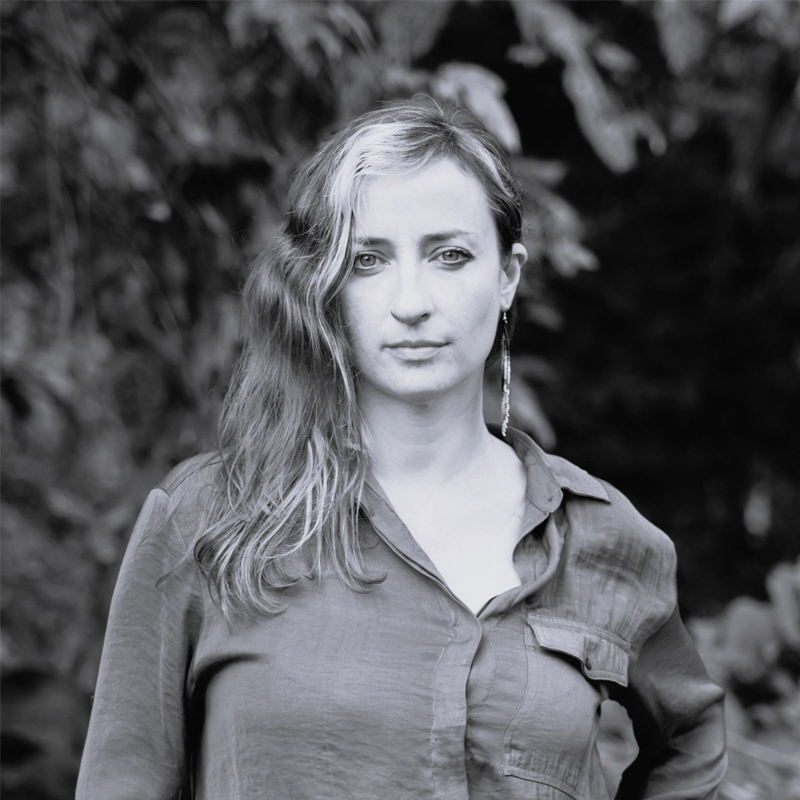
©Tania Huamani
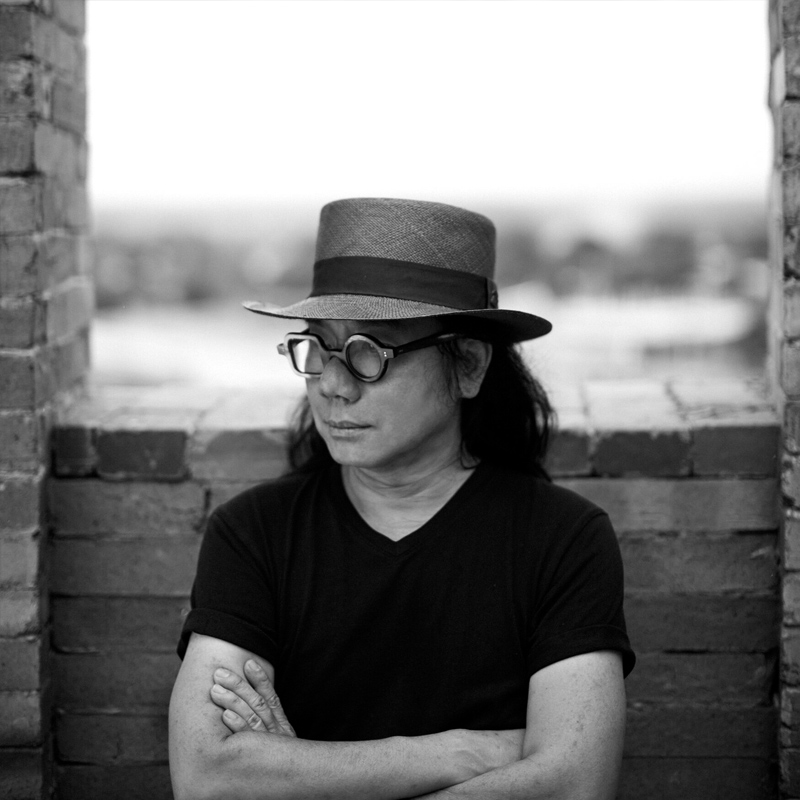
2026 GUEST JURY
©I AM EVERYTHING
Boonserm Premthada
Architect, Bangkok, Thailand
2018 Global Award for Sustainable Architecture™ Laureate
Boonserm Premthada began his career as an educator in 1996 at Chulalongkorn University where he remained until 2022. In 2023 he was Dean’s Visiting Assistant Professor at Columbia university, GSAPP and Visiting Assistant Professor at The University of Hong Kong.
In 2003, Boonserm founded the BANGKOK PROJECT STUDIO. Premthada’s works focus on nature and humanity and convey this message through materials, structures, and construction processes.
The social intenset of his architecture is equally significant. Premthada’s interest in supporting local communities is also evident in his community – focused “‘Artisans Ayutthaya: the Womanen’s Restaurant”’. To complete this restaurant, the architect employed overlooked and repurposed materials. This restaurant promotes sustainable architecture, community values, and local traditions; it is proof of the women’s determination to preserve the cuisine and craft of Ayutthaya.
“Elephant World’” is a government project that seeks to provide a source of stable income for the Kui people, an ethnic group in Surin, north – eastern Thailand, and their elephants.
Boonserm Premthada was born and raised in a slum in the heart of Bangkok, and is 70 percent deaf. His having never studied abroad keeps his ideas free of outside influence like “a wild orchid” that grows without the shade or domination of theories. He uses the fundamental asset of humans, and non- human intuition, in his design. With a keen perspective as a carpenter’s son, he was taught to be realistic, which helped him accurately estimate the scale and proportion of a work. This influenced his design approach differently from the methods that are generally taught in architecture schools.
Prof. Dorte Mandrup
Architect, Copenhagen, Denmark
2022 Global Award for Sustainable Architecture™ Laureate
2027 GUEST JURY
Dorte Mandrup’s approach to architecture, which has always been ‘hands-on’ yet emotional, was influenced by her studies in sculpture, ceramics, and medicine. Shape, form and spatial poetry constitute her company’s ethos – to create spaces that are aesthetically meaningful, contextually relevant, and invite people to engage.
A graduate of the Aarhus School of Architecture, Denmark in 1991, in 1999 she founded her Copenhagen-based studio where she is the Creative Director.
As a humanist with a distinct nonconformist outlook, Dorte Mandrup is well known for her commitment to the development of the architectural practice and her frequent participation in public debates. Receiving national and international acclaim for her work, in 2018 Dorte headlined at the curated international exhibition at La Biennale di Venezia.
She was one of the five laureates of the 2022 Global Award for Sustainable Architecture, named AD Architect of the Year and awarded the Prince Eugen Medal from the Swedish Royal Court the following year, 2023.
Dorte is member of the Architecture Section in Akademie der Künste, Berlin, Vice Chairman of the Louisiana Museum of Modern Art, former member of the Historic Buildings Council in Denmark, Chair of the prestigious Mies van der Rohe Award 2019, Adjunct Professor at The Royal Danish Academy of Fine Arts and holds frequent visiting professorships abroad, including Cornell University College of Architecture, Art, and Planning, University of Washington, Accademia di Architettura di Mendrisio and in 2025 as Kenzo Tange Design Critic in Architecture at Harvard GSD.
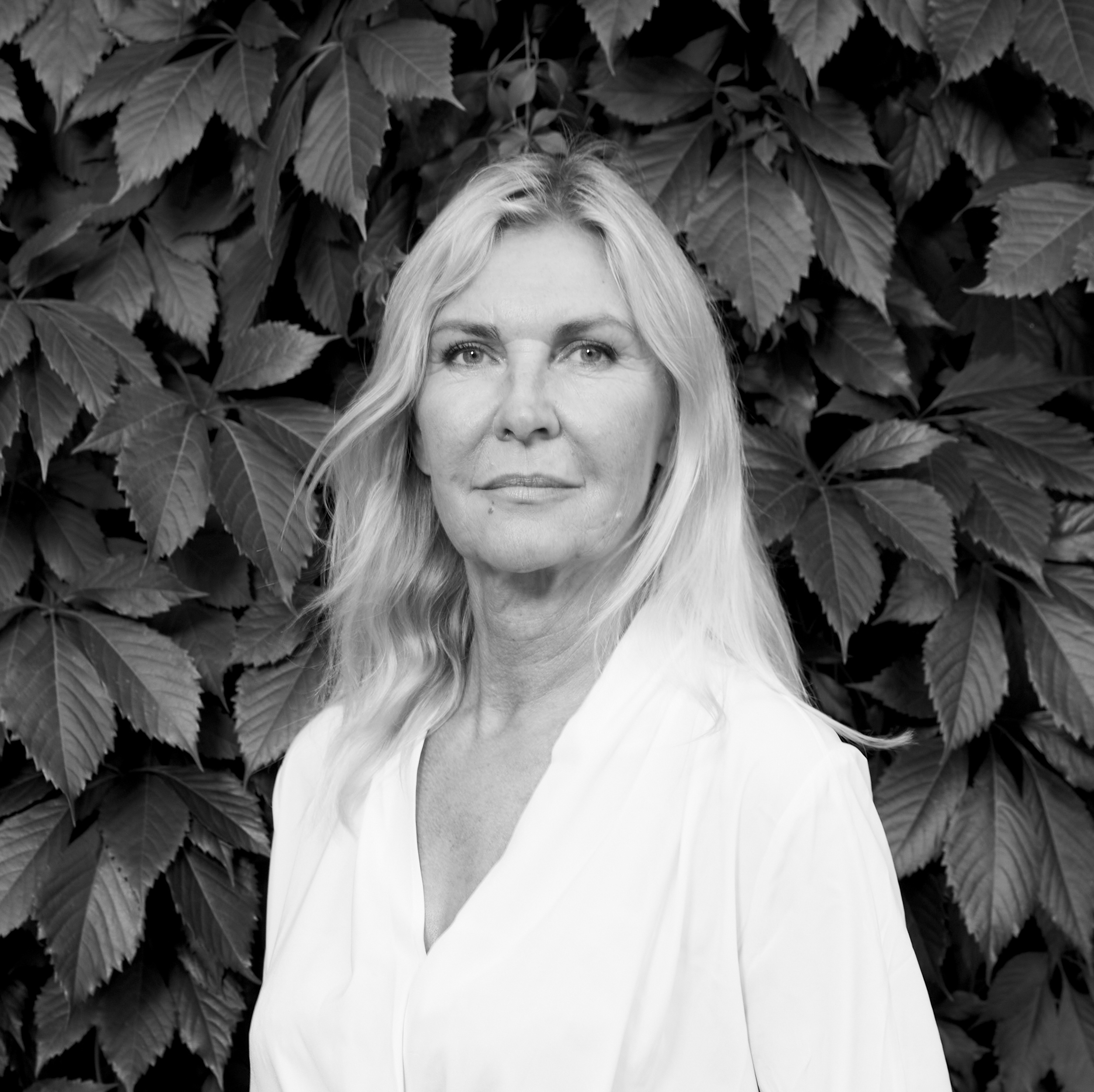
©Volker Renner
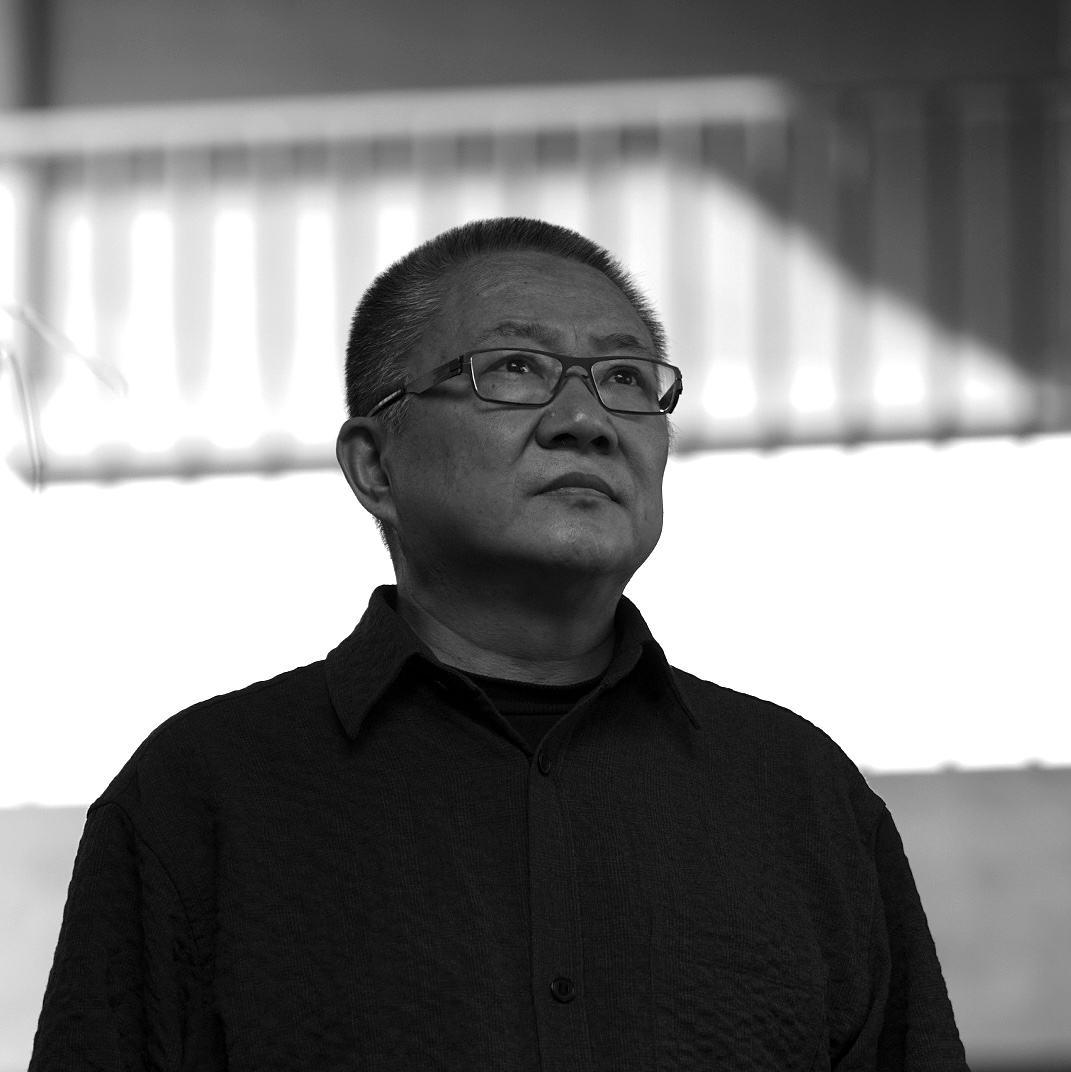
2027 GUEST JURY
Prof. Wang Shu
Architect and Educator, Hangzhou, China
2007 Global Award for Sustainable Architecture™ Laureate
Wang Shu, laureate of the 2012 Pritzker Architecture Prize, was elected a member of the French Academy of Architecture in 2023. He is both an architect and an educator. In 1997, he co-founded Amateur Architecture Studio with Lu Wenyu. Together, they established the Department of Architecture at the China Academy of Art in 2003, followed by the creation of the School of Architecture in 2007, where Wang Shu became its first dean.
Among the studio’s major works are the Ningbo History Museum, the Xiangshan Campus of the China Academy of Art, Tiles Hill in Hangzhou, the renovation of Wencun Village, the Fuyang Cultural Complex, the National Archives of Publications and Culture in Hangzhou, the preservation and renovation of Southern Song Imperial Street, and the Lin’an History Museum. In 2021, The New York Times selected the Xiangshan Campus as one of “The 25 Most Significant Works of Postwar Architecture” worldwide.
Wang Shu has held numerous academic positions. He was the Kenzo Tange Visiting Professor at Harvard GSD in 2011 and has served as Visiting Professor at MIT, UCL, Rice University, the University of Hong Kong, and Tongji University. He has received an Honorary Professorship from Southeast University, an Honorary Fellowship from RIBA, an Honorary Doctorate from RISD, and an Honorary Doctorate in Sociology from the Chinese University of Hong Kong.
His distinctions include the French Gold Medal of the Academy of Architecture (2011), recognition as one of Time magazine’s “100 Most Influential People in the World” (2013), and the Tau Sigma Delta Gold Medal (2019). He has served as a juror for the Pritzker Architecture Prize from 2018 to 2024. In 2007, he was one of five laureates of the first edition of the Global Award for Sustainable Architecture.